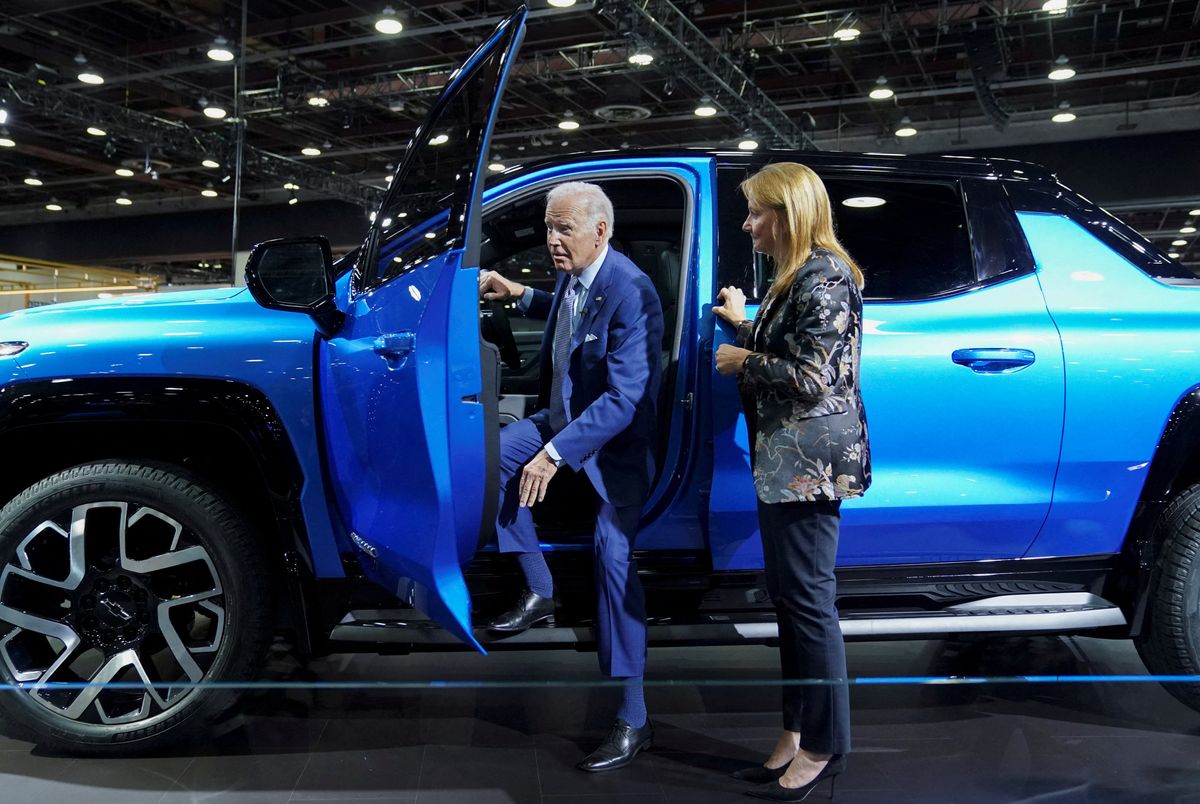Joe Biden has big plans to supercharge the US electric vehicle industry. He wants half of all new cars sold in the US to be electric by 2030 as part of his bigger goal of putting the country on track to be carbon neutral by 2050.
But as admirable as it may be from a climate policy perspective, Biden’s EV agenda is also getting him in trouble with other policy priorities.
First, the unions. As we previously wrote, Biden this week joined the picket line with the United Auto Workers union, which is striking for the first time against all three major American automakers.
It was an unprecedented move for a sitting president, meant to reinforce his image as “Union Joe” ahead of the 2024 elections. As he knows, winning the industrial Midwest will be important if he wants to win the White House again.
But part of the reason the UAW is on strike in the first place is because of the rapid rise of the EV industry, which generally requires less human labor and is so far led by non-unionized companies like Tesla, where UAW leaders say the labor standards are lower. To UAW workers, a bigger EV industry looks like a threat to their job security.
Second, China policy. One obstacle to greater uptake of EVs in the US is that they’re still more expensive to buy than comparable gas-powered cars. To solve that problem, the Biden administration has provided $7,500 subsidies to consumers who purchase EVs from specific automakers.
But there’s a catch — starting next year, that subsidy won’t apply to any EVs made with components supplied by US rivals. And the country that happens to produce EV batteries most cheaply is (you guessed it) also Washington’s number one rival: China!
Ford, for example, has staked its EV future on a new $2 billion plant that will make batteries with technology licensed from China. The factory is a crucial part of the company’s strategy to compete in the EV market, and it would also help the Biden administration meet those ambitious EV targets.
But China hawks in Washington say using Chinese technology in an American EV factory is a self-own. After all, what good is it to meet the Biden administration's stated objective of “bringing supply chains home” if that means bringing China into the house?
Ford’s crosstown rival GM, wary of losing ground to Ford in the EV race, has picked up this argument, lobbying the administration to adopt the strictest possible interpretation of the subsidy restrictions, according to the Wall Street Journal.
All of this puts Union Joe, Green Joe, and China Hawk Joe in a three-way squabble: People can’t buy EVs unless they are cheaper, but they can’t get cheaper (for now) without Chinese technology, but they can’t get Chinese technology without tripping up the policy of NOT using Chinese technology.






